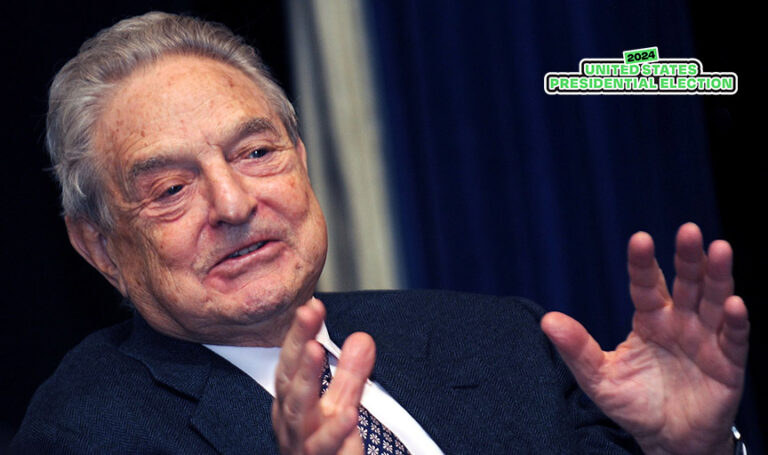Billionaire George Soros targets Hispanic voting bloc and Republicans throw low blows in 4th debate

Welcome to week 5 of our weekly recaps where we break down everything you need to know about the upcoming 2024 US presidential election—make sure to also check out week 4 in case you missed it. This week, we’re going to be tackling the role of billionaires in elections, the most recent dramas from the fourth Republican presidential debate, and the crucial function that third-party candidates will play in next year’s election. Let’s get started.
Everything you need to know about the 4th Republican presidential debate
On Wednesday 6 December 2023, Ron DeSantis, Nikki Haley, Chris Christie, and Vivek Ramaswamy gathered at the University of Alabama to take part in the 4th Republican presidential debate. As you can probably imagine, much of the debate involved pointless tantrums and child-like insults.
What’s seemingly become custom during these debates is that instead of candidates taking time to articulate their proposed policies and state why they would be a suitable choice for office, they spend almost all of their allotted slots slamming each other and pursuing personal digs.
Interestingly, however, a lot of commentators have stated that Donald Trump’s decision not to take part in any of the GOP debates so far has been a smart move. According to CNN, while candidates such as Haley and Christie have placed doubt on Trump’s ability, these moments have been quickly sidelined by the much more entertaining and significant clashes between those candidates in the debates. The whole ‘out of sight, out of mind’ mantra might actually work in Trump’s favour in 2024.
Who is George Soros and how might he impact the 2024 US presidential election?
George Soros is a Hungarian-American billionaire and philanthropist who has been involved in politics for decades now. Soros is the founder of the Open Society Foundations, the world’s largest private funder of independent groups working for justice, democratic governance, and human rights.
Soros has always been politically active and has been very vocal in his support for Democratic and liberal policies. In 2021, he quietly donated $140 million to advocacy organisations and ballot initiatives, plus another $60 million to like-minded charities, as reported by CNBC.
In 2022, Soros also personally donated $170 million during the 2022 midterms to Democratic candidates and campaigns.
While using non-profits as a way to hide political donations and funding is nothing new, Soros’ tactics are highly interesting, particularly in regard to his targeting of certain key voting blocs. For example, as reported by Daily Caller, in 2022, Soros’ network funnelled millions of dollars into left-of-centre Latino voter mobilisation groups and left-wing Latino advocacy organisations.
The Hispanic voting bloc has been a major target for Democrats over the years, and it will play an important role in the 2024 elections. This is especially because Latino communities, once a stronghold of Democratic allegiance, have been loosening their ties with the more liberal party.
Outside of the elections, 93-year-old Soros has also been in the news recently for his donations related to the ongoing Israel-Hamas war. According to the New York Post, Soros has channelled $15 million since 2016 to groups behind October’s pro-Palestine protests, some of which featured demonstrators openly cheering Hamas militants’ terrorist attacks on Israel.
Why will third-party candidates be so important in the 2024 election?
Third-party candidates will play a very important role in the 2024 US presidential elections. This will primarily be down to the fact that both Trump and incumbent Joe Biden are suffering in the polls. In fact, Biden even admitted that were Trump not running, he would not have sought re-election, as reported by The Guardian.
While there’s little likelihood that a candidate outside of the two primary parties would ever win the presidency, their very existence threatens both Biden and Trump’s chances.
Indeed, in particular for Democrats, there is a heightened sense of concern. This is mainly due to what happened in 2016 when Green Party nominee Jill Stein’s small portion of the vote enabled Trump to defeat Democrat Hilary Clinton.
Whether or not history will repeat itself is unknown, but it’s a sure thing that the 2024 US presidential election might be the most crucial and divisive one yet.





